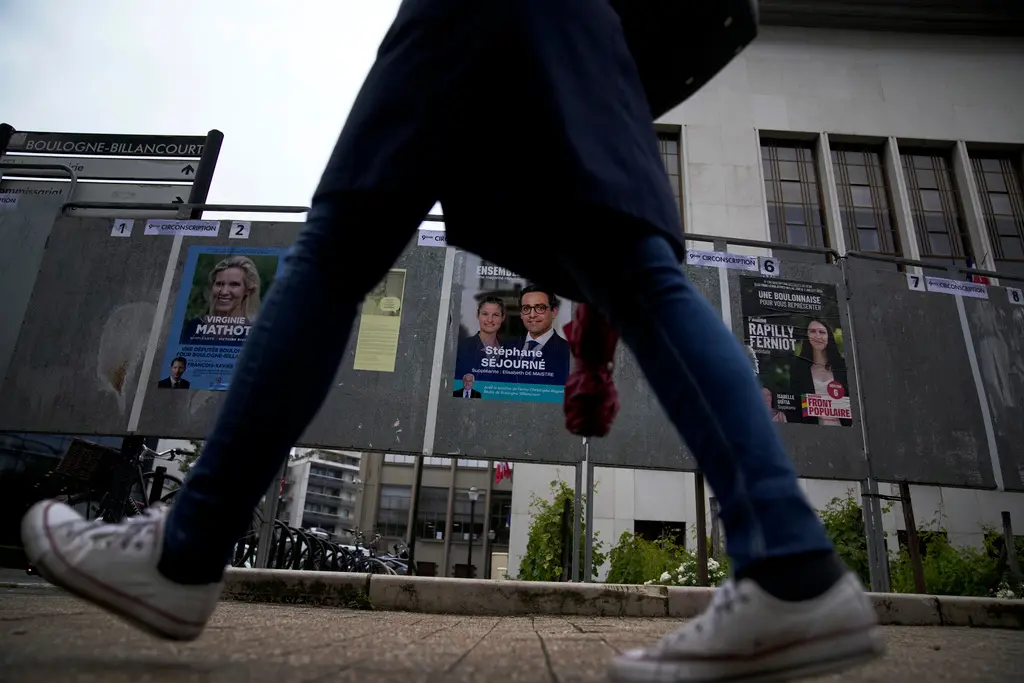The President is being pressured from two sides and may become increasingly cornered – but France can also end up in a deadlock.
Here are the conditions for France's parliamentary election.
Why is France going to the polls?
President Emmanuel Macron called for new elections to the National Assembly on the evening after the EU election. His center alliance suffered a catastrophic defeat, and the far-right party National Rally (RN) became the clear largest party.
Macron has gradually lost popularity and power since he was first elected President in 2017. He was re-elected to the post in 2022, but with a smaller margin, and lost his majority in the subsequent parliamentary election.
The President claims he wants to let the French people choose their path given public opinion. Some analysts and critics believe he is taking a great risk and opening the door to extreme forces. Others think he is "testing" the voters' discontent – and the nationalists' power ambitions.
.
What is at stake?
Concretely: 577 seats in the National Assembly.
In practice, it is about a significant part of the executive power under France's powerful presidency – about Emmanuel Macron's room for maneuver.
The presidency itself is not at stake, but if there is a shift in the balance of power in the National Assembly, Macron may be forced to appoint a prime minister from another party. Then he will find himself in an unusual situation called "cohabitation", a forced coexistence where the prime minister often has the final say.
.
What are the big issues?
Money, in wallets and state coffers. High living costs have been a problem for several years, and the government believes it has improved the situation as much as possible.
From the opposition side, promises are being made about more money for the public sector on the one hand and tax cuts on the other, in a situation where the sitting government needs to cut back on expenses due to growing budget deficits and national debt.
Immigration, law and order, and environmental issues also engage voters, according to polls.
.
Why is Macron warning of civil war?
Voting for extreme and divisive forces can ultimately lead to civil war, warns the President.
Emmanuel Macron came to power by positioning himself on a middle ground between the traditional right- and left-wing parties. In the recent presidential duels with nationalist leader Marine Le Pen, he has portrayed himself as a sane alternative in a struggle for democracy and values, and as a more compromise-prone statesman in contrast to radicals.
Macron is raising the stakes by describing it as a fateful choice. Critics accuse him of trying to scare the French people in the absence of anything else to offer.
.
Who will win?
RN has the wind in its sails in national opinion, but National Assembly members are elected in smaller single-member constituencies.
There, various forms of horse-trading can occur, or individual candidates can be particularly popular. Much also depends on which candidates are pitted against each other in decisive duels.
The likelihood of one of the three major blocs gaining an absolute majority is low.
And if none of them can find new alliances and form a government coalition, France will end up on uncharted territory, in a parliamentary deadlock, without the possibility of calling new elections again for a year.
National Rally (Rassemblement national, RN)
France's large far-right party, which has grown significantly under Marine Le Pen's leadership. The poster boy in the election is the young party leader Jordan Bardella, 28. Made a breakthrough in the National Assembly in the 2022 election, going from 7 seats to 89.
.
New People's Front (Nouveau front populaire, NFP)
The left-wing alliance where the former powerhouse Socialist Party (PS) is joining forces with the now larger and more radical left-wing party Unsubmissive France (LFI). The alliance also includes the environmental party EELV and the Communist Party PCF. Has not yet chosen a prime ministerial candidate.
.
Together (Ensemble)
In Emmanuel Macron's balancing center alliance, the President's party Renaissance is cooperating with mainly liberal parties MoDem and Horizons. Prime Minister Gabriel Attal hopes to stay on.
.
The Republicans (Les républicains, LR)
The traditionally largest right-wing party was severely split when leader Éric Ciotti opened up for cooperation with the now larger RN ahead of the election. The party leadership tried to remove him. Ciotti has gone ahead with around 60 candidates who follow him in the cooperation with RN. The party leadership backs around 400 other LR candidates.






